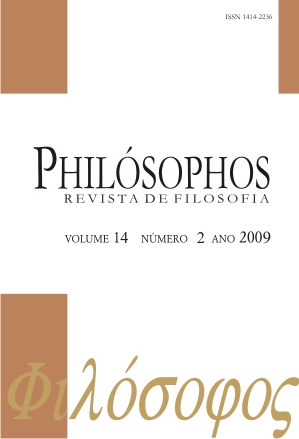A ÉTICA KANTIANA E A POSSIBILIDADE DO ALTRUÍSMO (THOMAS NAGEL)
DOI:
https://doi.org/10.5216/phi.v14i2.10850Palavras-chave:
Moralidade, Altruísmo, Autoconsciência.Resumo
O presente artigo discute a relação da ética do altruísmo, defendida por Thomas Nagel, com a ética kantiana. Segundo o próprio Nagel, sua posição é semelhante à de Kant sob dois aspectos: ela defende a tese da autonomia da motivação moral, e ela funda a moral numa determinada autoconcepção da pessoa. No entanto, diferentemente de Kant, o princípio da ética nageliana é apenas o pressuposto modesto de que uma pessoa essencialmente considera a si mesma como sendo uma numa pluralidade de pessoas. Partindo do argumento nageliano em The Possibility of Altruísmo (1970), mas contemplando também a posição mais recente de Nagel em The Last Word (1999), argumenta-se que Nagel só pode defender sua concepção de uma ética racional de modo convincente, se ele se aproximar mais da fundamentação kantiana da ética do que ele pretende.Downloads
Downloads
Publicado
Como Citar
Edição
Seção
Licença
Autores que publicam nesta revista concordam com os seguintes termos:
- Autores mantêm os direitos autorais e concedem à revista o direito de primeira publicação, sendo o trabalho simultaneamente licenciado sob a Creative Commons Attribution License o que permite o compartilhamento do trabalho com reconhecimento da autoria do trabalho e publicação inicial nesta revista.
- Autores têm autorização para assumir contratos adicionais separadamente, para distribuição não-exclusiva da versão do trabalho publicada nesta revista (ex.: publicar em repositório institucional ou como capítulo de livro), com reconhecimento de autoria e publicação inicial nesta revista.















